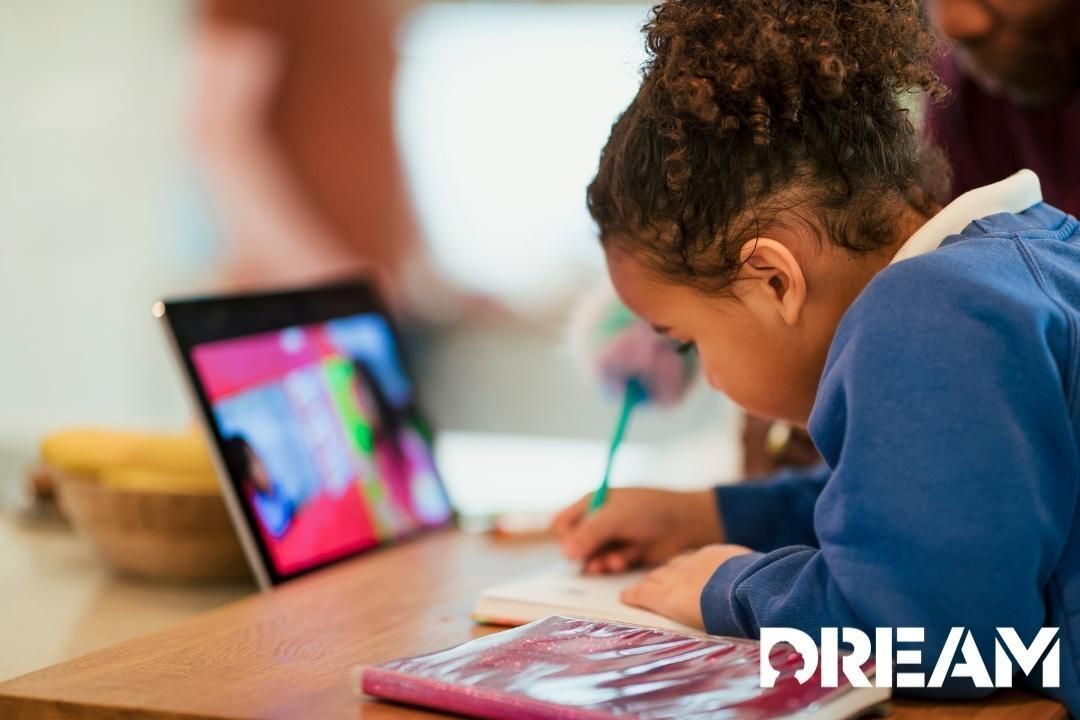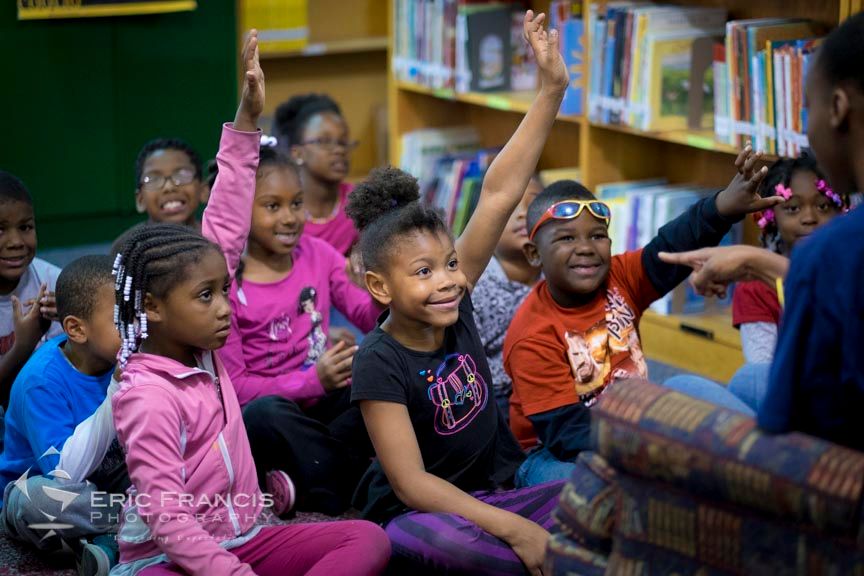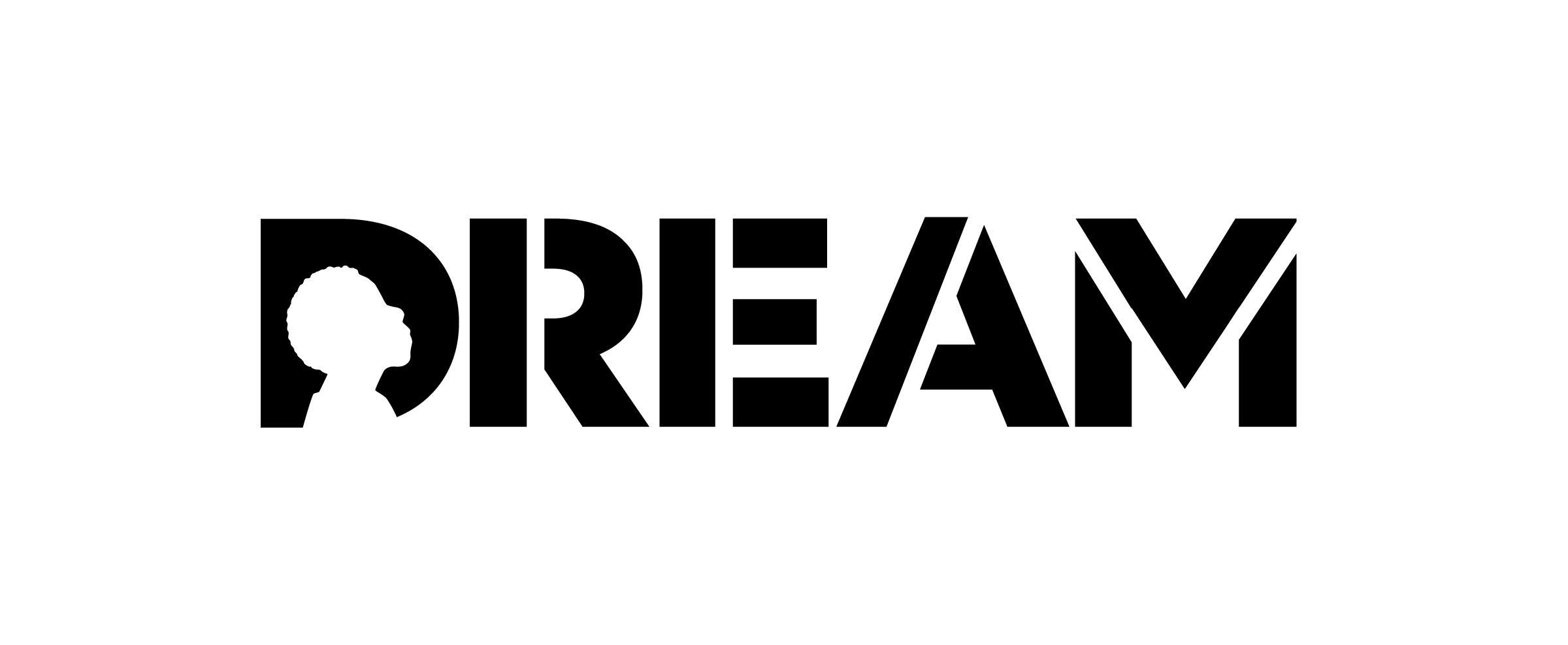
October is Learning Disabilities Awareness Month. Learning disabilities can make it difficult for children to learn reading, writing and math. About 15% of school-aged children struggle with a learning disorder. Although learning disabilities never go away, there are strategies that can help children with them do better in school.
DREAM wants to spread more awareness surrounding learning disabilities so that we can create schools and workplaces where everyone can thrive. We offer after-school youth programs in which we provide academic instruction and tutoring in math and reading, as well as homework assistance and enrichment activities.
Breaking the stigma
Nobody should ever be afraid to say, “I could learn better if I had this.” Raising awareness about learning disabilities goes hand in hand with breaking the stigma. If a child with dyslexia has trouble reading, listening to the reading instead may help them better comprehend the text. If someone is struggling with ADHD or another attention disorder, allowing them to take breaks throughout the school day can help them perform and learn better.
By being more open and understanding about learning disabilities, we create a healthier and more encouraging learning environment for the children who struggle with them. Because of that, children may be more willing to ask for help or for a certain accommodation they need. Sadly, 18% of students with learning disabilities will drop out of school. It doesn’t have to be that way. If we can give them the resources and attention they need to do their best, we may be able to keep them in school and out of any other trouble.
An increase in learning disabilities
The Covid-19 pandemic has negatively impacted both the learning and social skills of students. Some of our youth have spent most of their time “in school” completing their school work from home via a computer. They have not been able to engage with a positive learning environment as long as some of the other students have. This has dramatically affected the way students learn and interact with one another.
At the end of January 2022, more than 616 million students worldwide were still impacted by school closures. In addition to learning disabilities, we’ve seen a rise in mental health problems with these students. We cannot go back in time to correct this, so it is necessary for us to be informed about any and all learning disabilities so that we can notice them and help how we can. It’s just as important to know the signs of anxiety and depression so we can assist students there, too.
Supporting a child with a learning disability
The first step is educating yourself on the disability. Know what it is and how it affects them. Once you know what it is, you can help explain it to them so they can also understand how it affects them. When it comes to schoolwork, focus on praising them for the work they did their best to do, rather than the result. Children with learning disabilities oftentimes have unique strengths we can put an emphasis on, by doing this we can help them keep up with their peers and use the strengths they have.
We can also provide these children with role models; giving them a mentor to talk to about their learning struggles, who can assist them with homework and can help motivate them to keep succeeding. Albert Einstein was autistic, and he is widely considered to be one of the smartest men to ever live. Leonardo da Vinci showed signs of dyslexia and ADHD, and look what he was able to accomplish throughout his life.
Benefiting from after-school youth programs
Raising awareness can help us do more good for children in our community. There is nothing wrong with having a learning disability. It’s called a disability, but when we begin to look at the strengths that come along with the disability, and start saying this child can do all these things regardless of having this, it becomes less of a disability and more of a gift.
We have seen children benefit from our after-school youth programs and mentoring programs. Even if some of their school experiences become unpleasant due to learning being more difficult than it typically is, we can provide them with a safe and nurturing environment to help them reach their full potential. Contact us today if you’re looking to get involved with helping the youth in our community!


